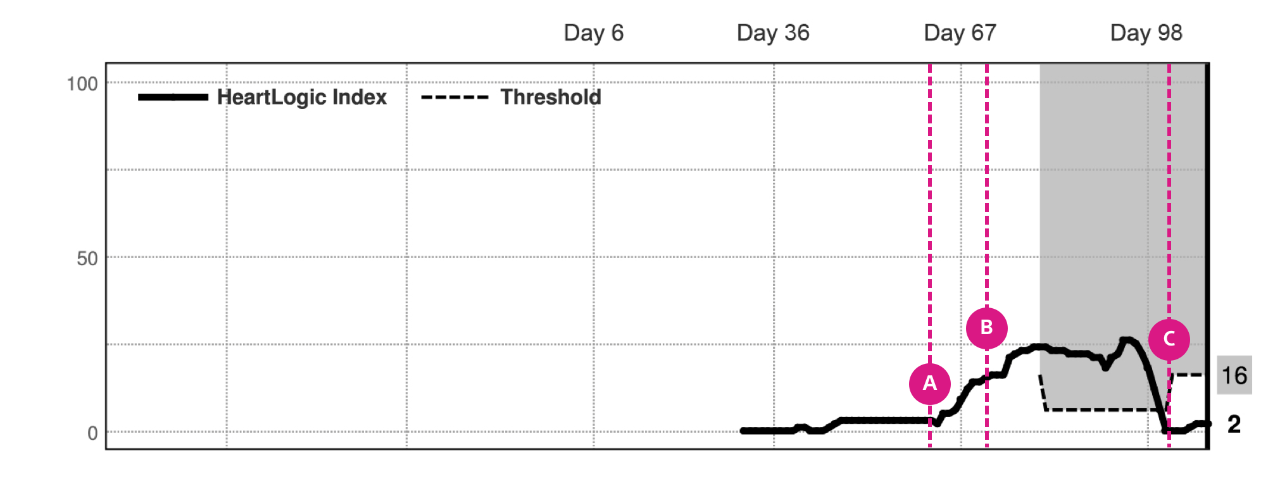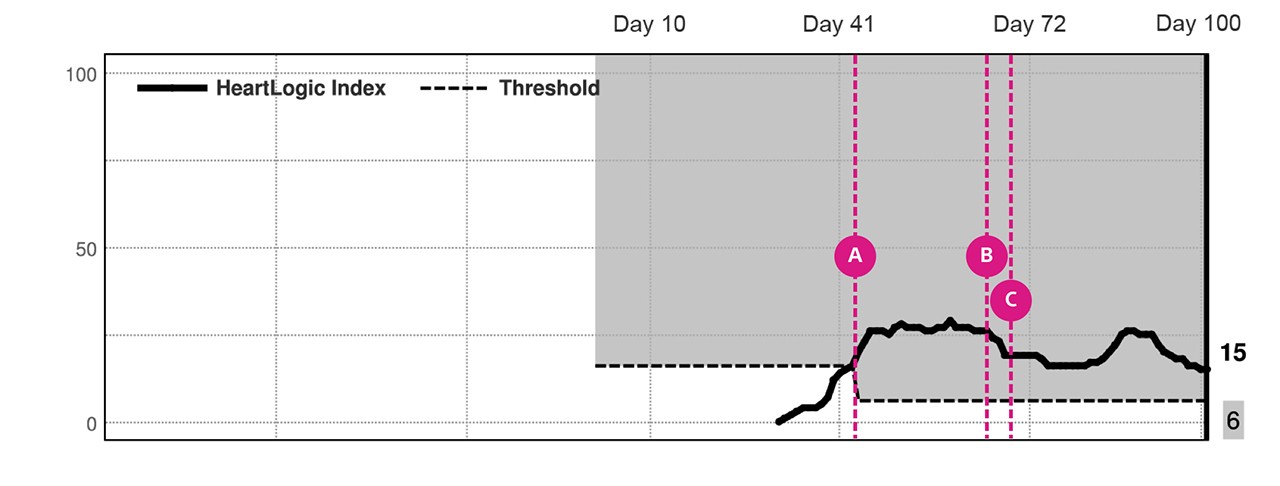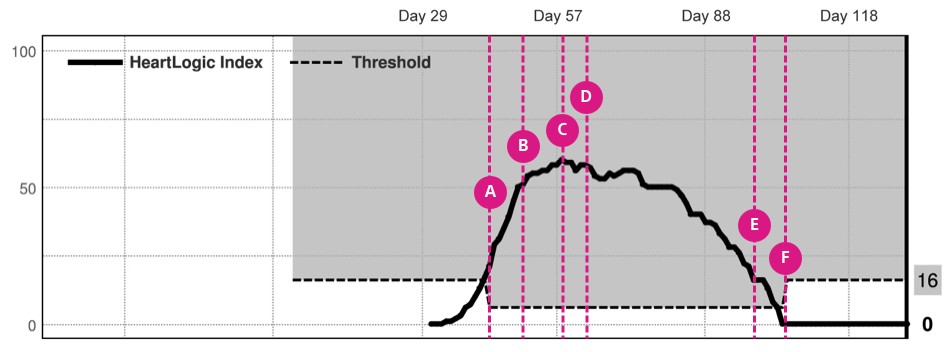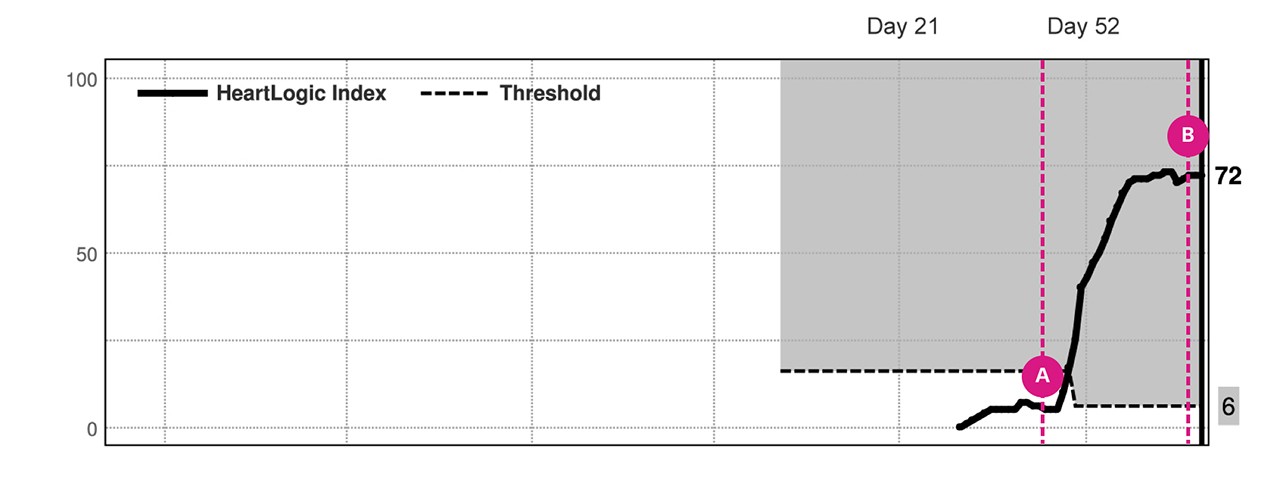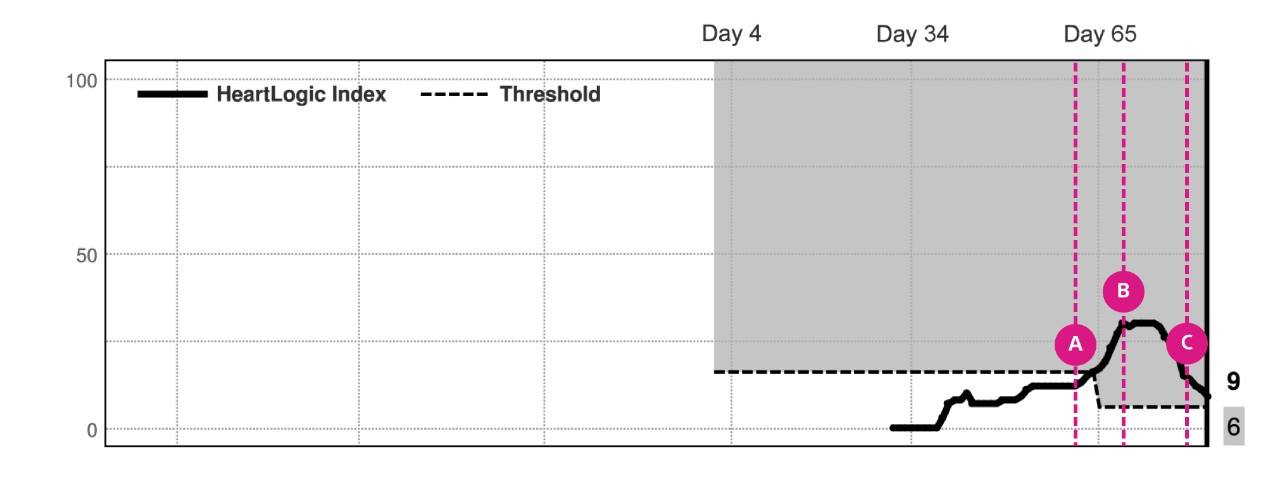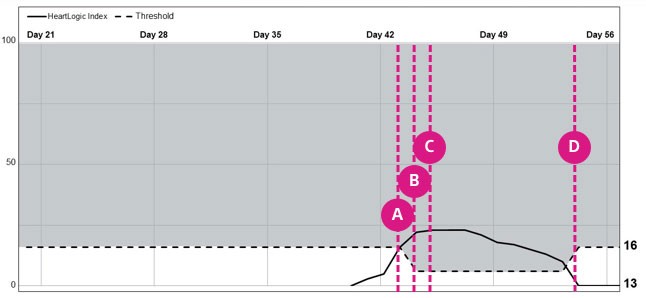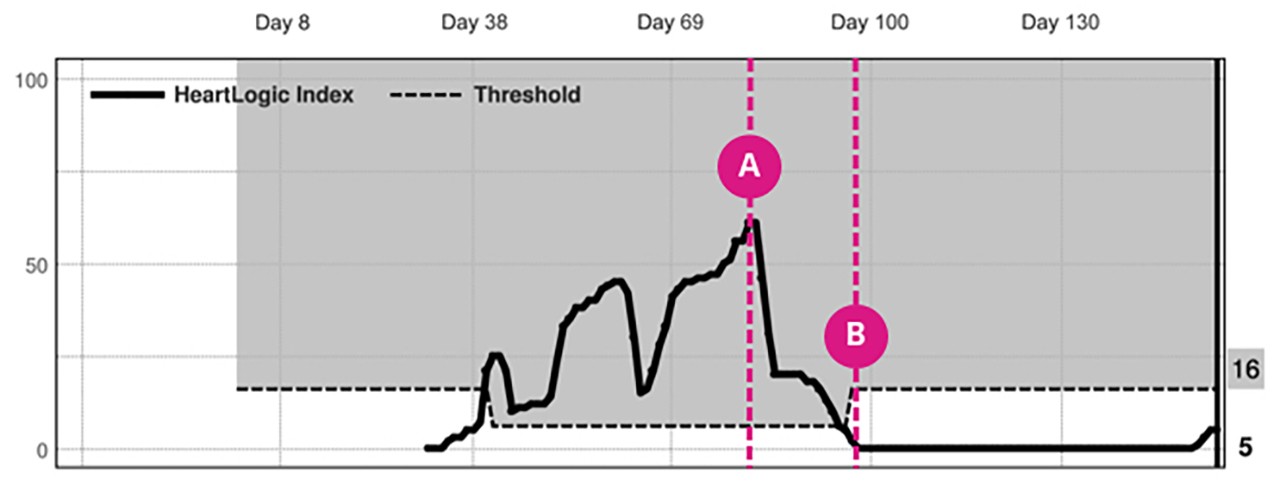
HeartLogic Case Studies
Challenging cases deserve extraordinary technology. Explore the case studies below to see how HeartLogic can help detect early warning signs of worsening heart failure weeks in advance1 using a propriety algorithm from a diverse set of physiological sensors.
Results of case studies are not necessarily predictive of all cases.
Worsening Heart Failure Due to Conducted AT/AF
Learn how the multi-sensor approach of HeartLogic was more predictive of worsening heart failure in a 70-year-old female patient than the presence of conducted AT/AF. This life-changing technology gave her clinician the actionable information needed to adjust medications and improve the patient’s outcome.
HeartLogic Alert Preceded Clinic Visit By 3 Weeks
Discover how HeartLogic led to more proactive, patient-centered care by detecting worsening heart failure three weeks before the patient was seen in-clinic with visible symptoms. In addition, the patient began complying with remote monitoring and achieved a 30-pound weight loss.
HeartLogic Brings Actionable Insight to Remote Monitoring
Explore the case of a 68-year-old woman with a history of dilated cardiomyopathy, severe mitral regurgitation, second-degree heart block and left bundle branch block. Thanks to HeartLogic, her care team was able to take a big step toward even more proactive care in this complex cardiac case.
HeartLogic Sensors Provide Objective Measure of HF Physiology
See how a highly elevated HeartLogic index led emergency department (ED) physicians to reverse their decision to discharge a patient. By providing valuable insights about the patient’s condition, this proactive technology helped physicians change the treatment plan and the patient was discharged after being treated for worsening heart failure.
HeartLogic Detects Worsening HF Due to Patient Non-Compliance
Discover how a HeartLogic alert gave the care team of a 30-year-old patient with a history of medication non-compliance more time to adjust treatment, improve the outcome and turn reactive treatment into proactive care.
HeartLogic Enables Proactive Care in the Outpatient Setting
Find out how HeartLogic alerted physicians of worsening heart failure (HF) a day after a patient’s follow-up visit where no HF symptoms were reported. As a result of this proactive alert, the patient was seen by an interventional cardiologist the following day, medications were adjusted and the HeartLogic index returned to baseline.
Increasing HeartLogic Alert Level Leads to Proactive Intervention
Find out how an increasing HeartLogic alert level helped lead to proactive intervention and rapid resolution of heart failure symptoms in this case study of an 85-year-old male patient with multiple cardiac issues.

Stay Up to Date
Sign up for periodic emails and receive a HeartLogic fact sheet to share with your patients’ care teams.
Physician Perspectives

“I think having a measure that can help risk stratify these patients, like HeartLogic, will help us concentrate on which patients are more susceptible to be admitted with heart failure hospitalization.”
Jagmeet Singh, MD, PhD
Explore more

Products
Your extraordinary talent. Our extraordinary technology. Explore the Boston Scientific CRT-Ds and ICDs that feature HeartLogic.

HeartLogic Resources
Explore clinical data, workflow tools and other resources to help you implement and use HeartLogic in your practice..
LATITUDE NXT™ Remote Patient Management System: Indications, Safety and Warnings
Resonate™ ICD: Indications, Safety and Warnings
Resonate™ CRT-D: Indications, Safety and Warnings
References
1. Boehmer JP, Hariharan R, Devecchi FG, et al. A Multisensor algorithm predicts heart failure events in patients with implanted devices: results from the MultiSENSE study. JACC Heart Fail. 2017 Mar;5(3):216-25.
Results from the case studies are not necessarily predictive of results in other cases. Results in other cases may vary.

